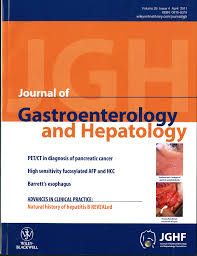Why Just Eating Healthy Food Is Not Enough (and May Make Things Worse).
If you're anything like me, digestion gets personal…IBS, celiac disease, multiple food sensitivity, hypochlorhydria, yeast overgrowth, I’ve suffered them all.
You can have the best diet in the world, but how can it nourish you if you can’t digest it, can’t assimilate it? Can't even begin to tolerate it?
The simple fact is, you are NOT what you eat; you are what your body DOES with what you eat. There's this little thing called physiology that comes between you and your food.
So in addition to putting in the good stuff, you have to take out the bad stuff; you have to take out the garbage. And that looks different for different people, because even good food can go bad inside you if your digestion and elimination are not working properly.
Case in point: Irritable Bowel Syndrome (IBS). Here's an affliction in which healthy foods can sometimes make you sicker. Many IBS sufferers become bloated, foggy, and miserable when they eat specific carbohydrates known as FODMAPs (Fermentable Oligo-, Di-, Monosaccharides, and Polyols). Unfortunately FODMAPs are found in many healthy foods like onions, garlic, cherries, asparagus, beans, whole wheat, and cauliflower...to name a few. So telling an IBS sufferer to "just eat a healthy diet”—by which you mean heaps of whole grains, legumes, and indiscriminate fruits and veggies—is not very helpful, is it?
That's where resources like the low-FODMAP diet come in, developed by Monash University (see below).
This week I'm passing on a few excellent links to help you if you struggle with IBS. This material will become an in-depth post later, but for now I just want you to know where to start looking for help. Because it's no fun feeling (or looking) pregnant by the end of the day, just because you had hummus for lunch...no fun at all. Especially if you're not pregnant!
As always, I'll do my best to make the complex seem simple, so you can just focus on feeling better.
Here's your focused information quest:
WATCH: The FODMAP Grand Tour Down Under: How IBS works. This video will teach you everything you need to know about your temperamental gut in just 3 minutes.
WATCH: Monash University Low FODMAP Diet App Video. A super handy app to make the low-FODMAP diet easy and fun.
WATCH: Beating the Bloat: the FODMAP diet & IBS by Professor Peter Gibson, Head of Gastroenterology at Monash University.
Professor Peter Gibson is Head of Gastroenterology at Monash University and an internationally renowned expert in the field. In 2013, he presented on the problem of Irritable Bowel Syndrome (IBS) and gut symptoms. He describes the controversy surrounding wheat intolerance, the most current research and outlines the new dietary approach, the low FODMAP diet, that is changing the way doctors and dietitians help people with IBS to manage their problem.
What about Small Intestine Bacterial Overgrowth (SIBO)?
Ah yes...SIBO. A tough problem.
SIBO is a subtype of IBS that is more severe than plain 'ol vanilla IBS. In SIBO, symptoms are not confined to the large intestine, but begin in the small intestine where bacteria from the large intestine have migrated and taken over. This can be very painful and debilitating because the location of the bloating does not allow SIBO sufferers to simply pass gas for relief. SIBO requires laboratory diagnosis using a Hydrogen/Methane breath test, which can be ordered by your doctor. If either Hydrogen or Methane are elevated, you have SIBO. Methane producers in particular can become profoundly constipated (as well as bloated), making matters worse.
In addition to a low-FODMAP diet, SIBO usually requires treatment with 30 days of herbal antibiotics or several weeks of a special pharmaceutical antibiotic called Rifaximin. Recurrence rate is high.
For more information visit siboinfo.com, where SIBO expert Dr. Allison Siebecker, has compiled a ton of useful links and protocols.
Keep in mind, the low-FODMAP diet is not meant to be followed long term. If you have IBS, or think you may have, I suggest you take these resources to your doctor and discuss working with a dietician or nutritional therapist for a prescribed amount of time and then reassess your tolerance for FODMAPs.
Okay, enough shop talk. I leave you now with a saying attributed to Martin Luther, spoken in front of his dinner guests, I presume:
Warum rülpset und furzet Ihr nicht? Oder hat es euch nicht geschmeckt?" —Tischreden (Table Talks)
Translation?
"What? No burping, no farting? Didn’t you like the food?"
Apparently Luther had a different idea of what’s appropriate at the dinner table. Or maybe he just had IBS.
Yours in Health and Resilience,
Marc Wagner Nutritional Therapist, MD
REFERENCE:

RELATED POST:
